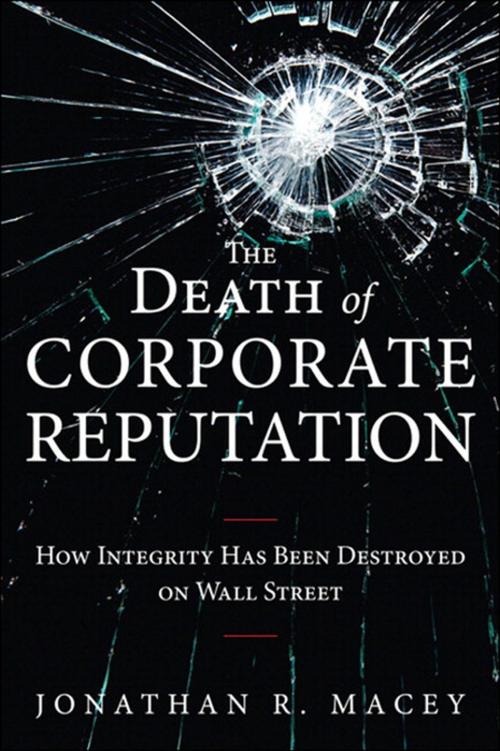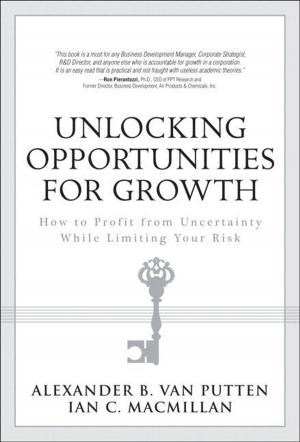The Death of Corporate Reputation
How Integrity Has Been Destroyed on Wall Street
Business & Finance, Finance & Investing, Corporate Finance, Banks & Banking, Finance| Author: | Jonathan Macey | ISBN: | 9780133039719 |
| Publisher: | Pearson Education | Publication: | March 20, 2013 |
| Imprint: | FT Press | Language: | English |
| Author: | Jonathan Macey |
| ISBN: | 9780133039719 |
| Publisher: | Pearson Education |
| Publication: | March 20, 2013 |
| Imprint: | FT Press |
| Language: | English |
Why did the financial scandals really happen? Why are they continuing to happen? In The Death of Corporate Reputation, Yale's Jonathan Macey reveals the real, non-intuitive reason, and offers a new path forward. **For over a century law firms, investment banks, accounting firms, credit rating agencies and companies seeking regular access to U.S. capital markets made large investments in their reputations. They treated customers well and ** sometimes **endured losses in transactions or business deals in order to ** sustain and nurture their reputations as faithful brokers and “gate-keepers.” This has changed completely **. The existing business model among leading participants in today’s capital markets no longer treats customers as valued clients whose trust must be earned and nurtured, but as ** one-off “counter-parties” to whom no duties are owed and no loyalty is required . The rough and tumble norms of the market-place have replaced the long-standing reputational **model in U.S. finance. **
This book describes the transformation in American finance **from the old reputational model to the existing laissez faire model and argues that the change came as a result of ** three factors: (1) the growth of reliance on regulation rather than reputation as the primary mechanism for protecting customers and (2) the increasing complexity of regulation, which made technical expertise rather than reputation the primary criterion on which customers choose who to do business with in today’s markets ; and (3) the rise of the “cult of personality” on Wall Street, which has led to a secular demise in the relevance of companies’ reputations and the concomitant rise of individual “rain-makers” reputation as the basis for premium pricing of financial services. This compelling book will drive the debate about the financial crisis and financial regulation for years to come -- both inside and outside the industry.
Why did the financial scandals really happen? Why are they continuing to happen? In The Death of Corporate Reputation, Yale's Jonathan Macey reveals the real, non-intuitive reason, and offers a new path forward. **For over a century law firms, investment banks, accounting firms, credit rating agencies and companies seeking regular access to U.S. capital markets made large investments in their reputations. They treated customers well and ** sometimes **endured losses in transactions or business deals in order to ** sustain and nurture their reputations as faithful brokers and “gate-keepers.” This has changed completely **. The existing business model among leading participants in today’s capital markets no longer treats customers as valued clients whose trust must be earned and nurtured, but as ** one-off “counter-parties” to whom no duties are owed and no loyalty is required . The rough and tumble norms of the market-place have replaced the long-standing reputational **model in U.S. finance. **
This book describes the transformation in American finance **from the old reputational model to the existing laissez faire model and argues that the change came as a result of ** three factors: (1) the growth of reliance on regulation rather than reputation as the primary mechanism for protecting customers and (2) the increasing complexity of regulation, which made technical expertise rather than reputation the primary criterion on which customers choose who to do business with in today’s markets ; and (3) the rise of the “cult of personality” on Wall Street, which has led to a secular demise in the relevance of companies’ reputations and the concomitant rise of individual “rain-makers” reputation as the basis for premium pricing of financial services. This compelling book will drive the debate about the financial crisis and financial regulation for years to come -- both inside and outside the industry.















